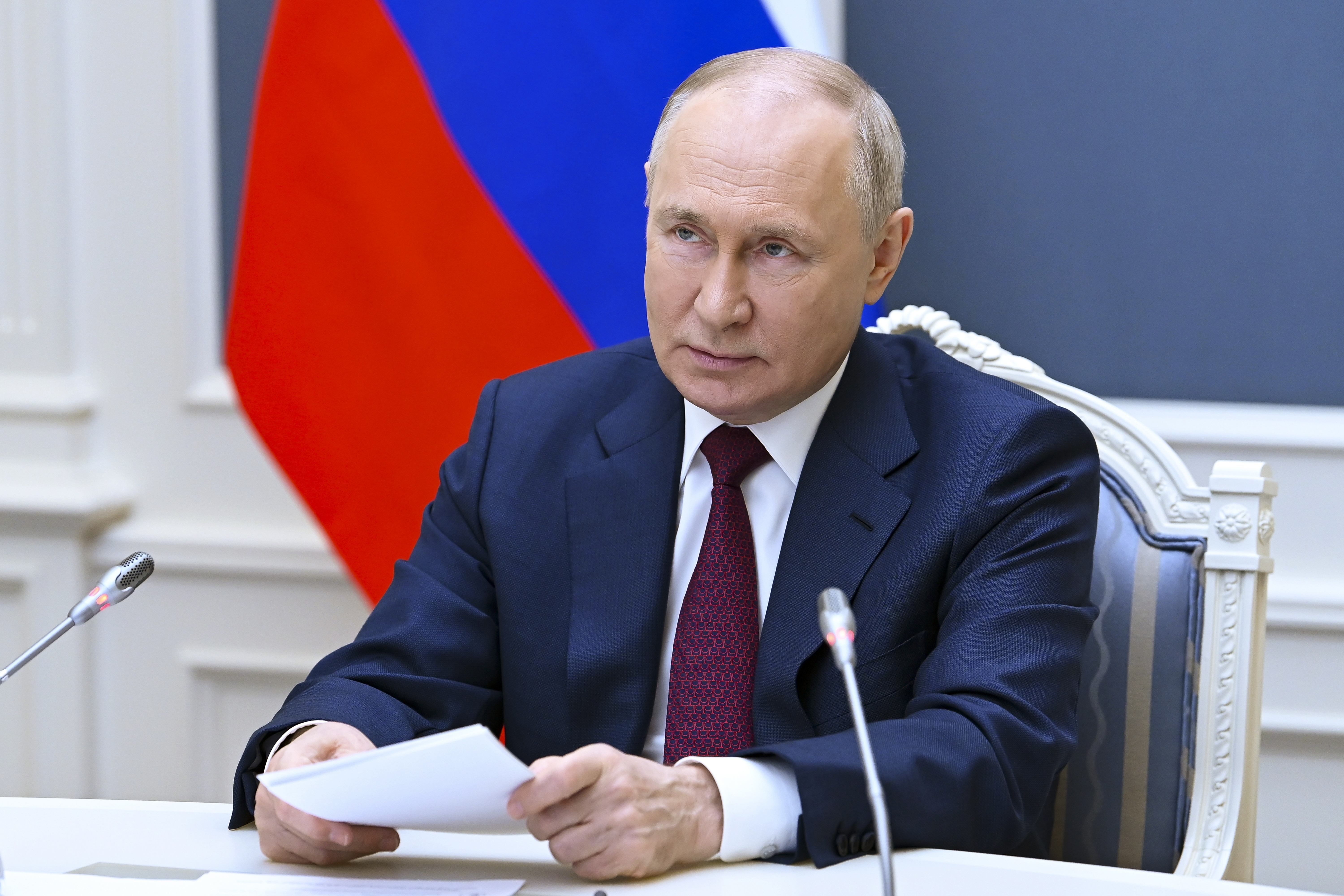
Russian President Vladimir Putin has attended a virtual summit of the Shanghai Cooperation Organisation (SCO) in his first appearance at an international event since Wagner chief Yevgeny Prigozhin staged a short-lived mutiny in June.
Putin on Tuesday joined India’s Prime Minister Narendra Modi, whose country is hosting the event, China’s President Xi Jinping, as well as leaders and representatives from several Central Asian states, including Pakistan and Kazakhstan.
The forum focused on security and economic cooperation, fighting terrorism and drug trafficking, tackling climate change and the situation in Afghanistan.
“The SCO has emerged as a significant platform for peace, prosperity and development in the entire Asian region,” Modi said at the summit.
However, the political significance of the summit, amid recent events in Russia and the war in Ukraine, runs much deeper for a grouping that represents a complex web of alliances and rivalries.
Why does the SCO matter?
The SCO is geographically and economically significant as its member countries contribute about 30 percent of global GDP, and are home to about 40 percent of the world’s population.
India, Kazakhstan, China, Kyrgyzstan, Russia, Pakistan, Tajikistan and Uzbekistan are full members. On Tuesday, the grouping included Iran as its ninth member. Afghanistan, Belarus and Mongolia have observer status with the SCO, while six countries — Azerbaijan, Armenia, Cambodia, Nepal, Turkey and Sri Lanka — have a dialogue partner status.
The SCO is not an “anti-NATO” alliance, as critics have sometimes labelled it. It is not an economic bloc (like the European Union) or military alliance (like NATO), although its members have conducted joint military exercises.
So what is it? The group is a regional intergovernmental organisation which offers Eurasian nations that believe in a multipolar world a chance to balance their interests amid growing global geopolitical tensions. And it provides Russia and China with a platform to promote stronger ties with nations that — while not allies — are happy to do business with them.
On Tuesday, Russia and China indicated that they want the SCO to do more. Putin pitched for greater economic integration among SCO nations, while also suggesting that the group needed to step up security cooperation – words echoed by China’s Xi and Iranian President Ebrahim Raisi.
The SCO’s origins lie in the signing of the “Shangai Five” pact in 1996 in Shanghai, an agreement designed to settle border disputes between China and its post-Soviet neighbours Russia, Kazakhstan, Kyrgyzstan and Tajikistan.
Today, it faces another continuing conflict along Russia’s borders with another post-Soviet nation, Ukraine.
What is the SCO’s view on the Ukraine war?
The SCO countries have all hesitated to criticise Russia since it launched a full-scale invasion of Ukraine in February 2022.
However, the reasons for maintaining ties with Russia have varied greatly between its members.
China has kept close diplomatic ties with Russia as it remained politically ambivalent over the war while ramping up trade with Russia after Western nations hit the latter with strict sanctions. In March, Xi travelled to Moscow to meet with Putin as the two leaders agreed to a “new era” of cooperation.

India, an old friend of Russia’s, has tried to play a delicate balancing act. Since the war began, it has dramatically increased its purchases of discounted Russian oil, maintained high-level contacts with Moscow, and regularly abstained from voting on UN resolutions condemning the war in Ukraine.
However, it has also maintained relations with Western nations and has, at times, indirectly voiced some concerns over Russia’s actions, highlighting the importance of the UN Charter, international law and respect for the sovereignty and territorial integrity of states.

Iran has been the most active in supporting Russia, signing several military deals with Moscow as the sanction-battered nation desperately seeks new economic lifelines.
How united is the SCO?
There are tensions among some of the members of the SCO.
The two most populous countries, China and India, have experienced a nearly three-year-old standoff involving thousands of soldiers stationed along their disputed border in the mountainous Ladakh region.
Each side has stationed thousands of military personnel backed by artillery, tanks and fighter jets along the de facto border separating China and Indian-held territories from Ladakh in the west to India’s eastern state of Arunachal Pradesh, which China claims in its entirety.

India and Pakistan are also barely talking, their decades-old tensions at a high. At the summit, Modi attacked Pakistan, pointing to its alleged support for fighters in Kashmir and beyond.
Recently Kazakhstan has shown signs of pivoting away from Russia. In June, the nation decided to stop hosting talks aimed at resolving the Syrian conflict in a surprise move that prompted Russia’s Security Council to accuse the West of driving a wedge between Russia and Kazakhstan by interfering in the affairs of sovereign nations.
Kazakh President Kassym-Jomart Tokayev also announced he would not attend an annual economic forum in Saint Petersburg, Russia. Instead, Almaty said, lower-level officials would participate, without giving an explanation.







